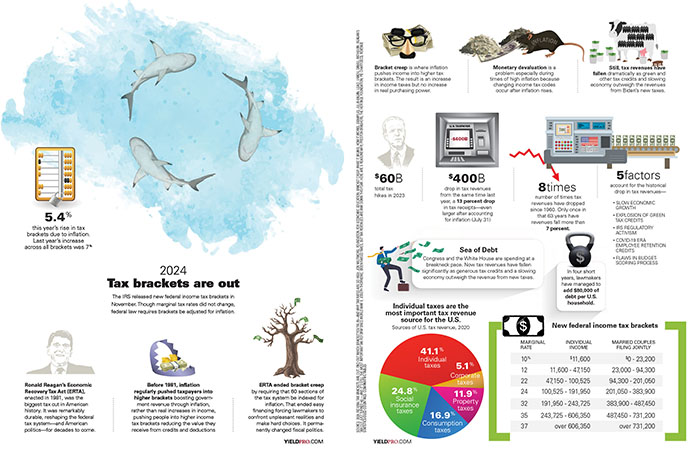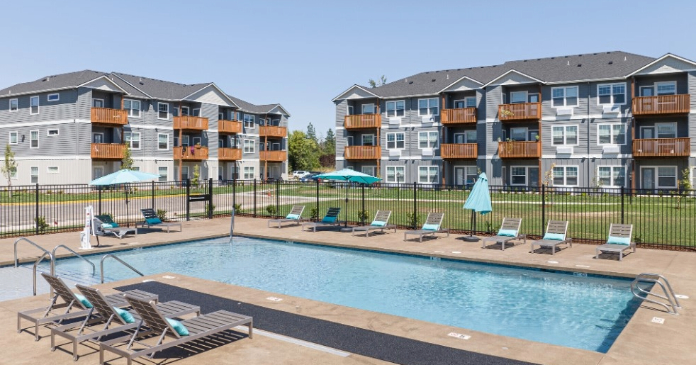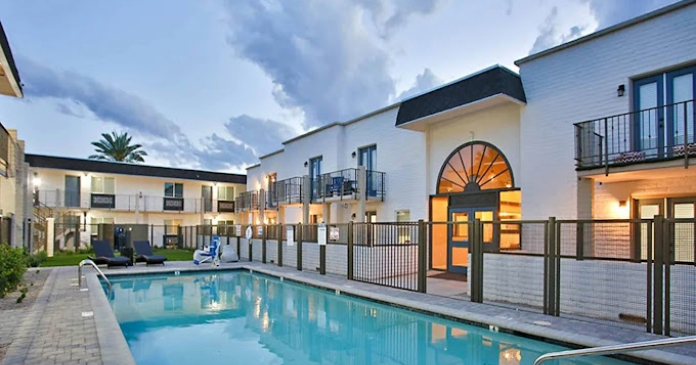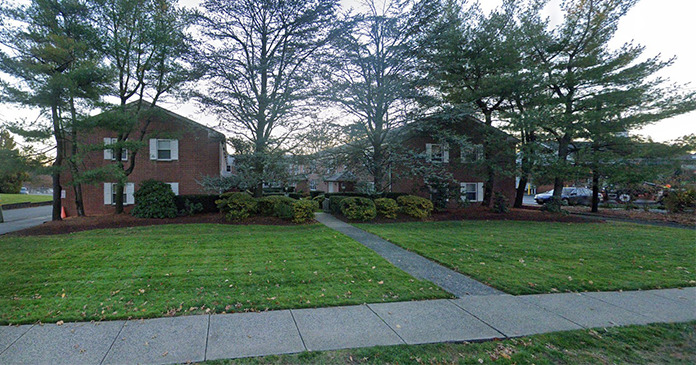The price excludes transaction costs but includes the assumption of more than $8 billion of debt and $60.75 per share in cash to shareholders, which represents a 22.7 percent premium to the closing price of Archstone-Smith’s stock when rumors first surfaced that the REIT was in play. That price still is around 6.2 percent below the stock’s 52-week high of $64.77 in January.
And, although the offer price is less than the $39 billion that Blackstone Group paid for Equity Office Properties (EOP) in February, the Archstone-Smith buy-out ranks as the largest public-to-private deal in the history of apartment REITs.
Some in the REIT investment community didn’t expect a company the size of Archstone-Smith, which owns more than 86,000 units in 344 communities in mostly coastal markets, to be a target for M&A.
But Green Street Advisors analyst Craig Leupold said size hasn’t been an issue since the EOP deal. “I think the level of surprise is heightened, in this case, by the fact that Archstone-Smith has a very valuable platform, is a very well-run company–arguably one of the top apartment firms in the country, if not the top apartment firm–and CEO R. Scot Sellers has suggested numerous times to the public market that his stock price does not adequately reflect the value of his portfolio, so it’s surprising to see him endorse a deal being done at NAV,” said Leupold, one of several analysts who don’t think the offer price fully reflects the value of Archstone-Smith’s high-quality assets and operations and development platform, the latter probably being the sweetest part of the deal.
In Q1, Sellers announced the addition of $140 million to the company’s development pipeline. He told analysts that Archstone-Smith planned, through joint venture partnerships, to acquire tired retail centers and office sites at market prices and rezone those parcels to multifamily by capitalizing on the REIT’s good relationships with a number of municipalities, a strategy that would complement Tishman Speyer’s expertise in commercial development. Archstone-Smith’s most recent deals include acquisition of a distribution facility and several office buildings at the value of their current use, with an eye toward creating additional value through the rezoning process, all the while earning income during that process to cover the cost of land ownership.
He also announced that the Anaheim city council unanimously chose a venture of Archstone-Smith and Hines Co. to develop a 53-acre, city- owned parcel that currently consists of parking lots for the Angels Stadium. The partnership offered $150 million for the site, where
they propose to build 1,100 apartments, an office component, several hotels and pedestrian-friendly retail.
Some expect that another suitor, probably a large private fund, will raise the stakes on the Archstone-Smith buy-out. As of press time, the REIT’s stock hovered above the offer price in anticipation of a bidding war similar to the battle that was waged for EOP by Blackstone Group and Vornado Realty Trust. In that case, Blackstone beat out Vornado by raising its bid 15 percent from the initial offer it made last November.
But Archstone-Smith’s board of trustees unanimously approved the merger with Tishman Speyer and the deal is expected to close in Q3, contingent on shareholders acceptance. And, any rival suitor would have to pay a break-up fee in addition to beating the Tishman Speyer/ Lehman offer.
RBC Capital Markets analyst David Rodgers discount’s the possibility of a substantially higher bid. “We basically calculate that Archstone- Smith has done, and would continue to create, about $3 to $4 of NAV per share for its investors annually. If you say the stock has an NAV of $57 and change, which is our estimate based on 2008 numbers, it’s probably worth $60.75. Our published NAV estimate is $60.73, right in line with the price, so you’re essentially looking at 12 to 18 months already just to get to the $60.75 level,” said Rodgers.
He thinks any company that initiates a bidding war would have to either see a higher multiple than his firm’s estimates or look further out to 2009 or 2010. “Anything’s possible,” he added, “but how likely, is ultimately the question, and we don’t put a lot of weight in it.”
The industry also is awash in talk of further sector consolidation with speculation that another buy-out announcement could come in a matter of weeks. Until mid-May, when REIT stocks surged on rumors that Post Properties had received a buy-out offer from non-listed REIT American Real Estate Trust, apartment REIT stocks were the worst performers in the public REIT sector, as investment was discouraged by recent slowing job growth and slumping occupancies over the past several quarters.
Leupold expects apartment REITs, which are trading at sizable discounts to their underlying real estate value, will continue to capture the interest of private capital looking for a place to grow. “REITs offer an efficient way to amass a portfolio very quickly, and there’s no way you could put together a portfolio of Archstone- Smith’s quality in the private market in any reasonable length of time. That’s the appeal of the privatization activity we see today– that, obviously, and price,” said Leupold.
Almost all the apartment REITs have been candidates for speculation lately. UBS analyst Alexander Goldfarb said his most likely picks for takeover are AIMCO, Colonial Properties Trust, Essex Property Trust and Equity Residential.
But Rodgers thinks AvalonBay Communities and BRE Properties, both of which have a strong presence in high-barrier markets and established development platforms, are most likely to attract institutional offers.”I wouldn’t be surprised if there are only three apartment REITs left, when the dust settles on the M&A activity,” said Pat Flanigan, VP of Sales for the Rainmaker Group, which inked a contract with Archstone-Smith earlier this year that gives Rainmaker exclusive marketing and future development rights for LRO, a pricing and revenue management system.
The Archstone-Smith transaction is to be financed by equity from Tishman Speyer, with the balance of debt and equity capital to be provided by Lehman Brothers, Inc., and Bank of America.
The deal would be the third record-breaker in the past year for Tishman Speyer. In 2006, just a few months before buying Stuyvesant Town and Peter Cooper Village in New York City from MetLife, Inc., for $5.4 billion, in the largest U.S. real estate transaction ever, the company sold 666 Fifth Avenue to Kushner Properties for $1.8 billion, the highest price ever paid for a property in Manhattan.
Tishman Speyer Senior Managing Director Rob Speyer spearheaded the deals for both Stuyvesant Town/Peter Cooper Village and Archstone-Smith. “Archstone is an exceptional company that has built one of the finest collections of multifamily assets in the industry,” he said in a prepared statement. The Denver-based REIT completed its 12-year repositioning efforts by the end of January, exiting Phoenix, Minneapolis and Florida, and even sold a development parcel in the Riverfront Park area of Denver’s downtown last November. Today, nearly 52 percent of the company’s NOI comes from New York City and Northern and Southern California, with the balance coming from Washington, D.C., Boston and Seattle.Tishman Speyer also gets the benefit of the REIT’s cutting-edge technology initiatives, including LRO and integration with MRI, an Internet-based property management system, and Online Lease, a system that enables renters to complete lease agreements online. Archstone- Smith’s management obviously is a key element of the deal. Sellers will remain with the company in a senior executive position after the merger.
Tishman Speyer has acquired, developed and operated more than 230 diverse properties, including New York City’s Rockefeller Center and Chrysler Center, the Sony Center in Berlin and Torre Norte in Sao Paolo in Brazil. The company has operations in major metros in the United States, Latin America, Asia and Europe, including Germany. With the acquisition of Stuyvestant Town/Peter Cooper Village, the company added 80 acres of prime Manhattan land that includes 110 buildings and 11,232 apartments to its portfolio. Layer on Archstone-Smith’s German operating company, DeWAG, its development capabilities and $4.4 billion development pipeline, and it’s easy to see why Tishman Speyer wants to own the REIT.















